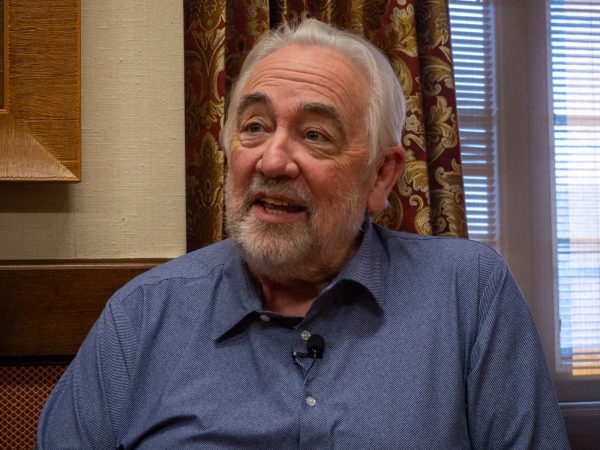For the first time in seven years, and the third time under Donald Trump’s presidency, the U.S. government has been shut down.
After congress failed to negotiate and pass a spending bill that would fund the United States government’s 2026 fiscal year, lawmakers have been sent home. Meanwhile hundreds of thousands of federal workers are working without pay, and almost a million have been furloughed.
It’s the 11th time that the U.S. government has been shut down.
The last government shutdown
The previous shutdown occurred in 2018 and was caused by a dispute over border wall funding. President Trump demanded $5.7 billion to build a wall after funding had been approved for the 2018 fiscal year.
Once Democrats took office and control of the house after that year’s midterm elections, they were at a stalemate with a Republican controlled senate.
The shutdown ended with a continuing resolution in January 2019. It was later followed with a spending bill for the entire monetary year. That gave Trump funds of $1.375 billion for border wall construction.
He later declared a national emergency at the border, which gave him the power to pull $6.7 billion from other capital projects to fund a wall. The Biden administration ultimately canceled the project.
That year’s shutdown lasted 35 days, the longest in U.S. history. But a stalemate over tax credits for the Affordable Healthcare Act, or Obama Care, created a deep partisan divide.
A history on government shutdowns in the U.S.
The process of government shutdowns is a contemporary process when compared to the nation’s history.
In 1974, Congress passed the “Congressional Budget and Impoundment Control Act,” which adopted the country’s current fiscal year model, which begins on Oct.1 and ends on Sept. 30, moving from the previous start of July.
The policy also created the Congressional Budget Office, which is a non-partisan economic advisory committee. A budget committee within the house and senate was also established, as well as the ability to exercise recissions and deferrals, which are processes interchanged between the congressional and executive branch to avoid impoundment.
The objective of the policy was to prevent the executive branch from avoiding to spend money appropriated by Congress. However, the bill’s plan allowed all government agencies to continue operating during funding gaps as government organizations held the mentality that congress would eventually pass appropriations.
That changed under the Jimmy Carter administration. Then, Attorney General, Benjamin Civiletti, submitted two opinion letters to Congress in 1980 and 1981. Both of these letters centered on his interpretation over the Antideficiency Act, which at its core, prevents federal agencies from engaging with money without congressional approval.
Civiletti in his first opinion letter wrote, “no funds may be expended except as necessary to bring about the orderly termination of an agency’s functions.” He also later wrote to Congress that some government establishments should continue if they were in charge of the “safety of human life or the protection of property.”
Congress put his interpretations into practice, which set the precedent for the process of a government shutdown.
The current shutdown
The main reason as to why Democrats and Republicans have failed to agree on a spending bill for this fiscal year is healthcare. In December, tax credits that lower healthcare costs under the Affordable Healthcare Act (ACA) will expire.
“Tax credits created by Democrats are set to expire for millions of Americans, including 92,000 El Pasoans,” read a statement by the office of District 16 House Representative Veronica Escobar. “Should these tax credits expire, El Pasoans may pay up to $1,000 a year more for health insurance.”
Originally, these tax credits were set to expire by 2022, but through the Inflation Reduction Act passed under congress and an executive branch controlled by Democrats, these credits were extended through the end of 2025.
Now, Republicans control the government and they’re not keen on extending ACA premiums.
“It’s clear that the Democrats wanted to shut it (the government) down because they want $1 trillion, so that they can give it to illegal aliens,” Michael Aboud, the chairman of the El Paso County Republican Party said. “You can buy insurance for much cheaper.”

In the middle of September, Senate Democrats revealed a proposal that would cost $1 trillion dollars. The money in this policy would be used to restore cuts to medicaid passed in President Trump’s “One Big Beautiful Bill Act.” It would also extend tax credit premiums under the ACA and address foreign aid cuts made by budget director Russell Vought.
“Since the ACA was filed, they’ve (Republicans) always wanted to destroy it,” Chairman of the El Paso County Democratic Party, Michael Apodaca said. “The ACA is supposed to be open for citizens and legal immigrants.”

At the moment, the power to reopen the government sits in the hands of the senate. Two weeks before the Oct. 1 deadline, the five seat Republican house majority passed a continuing resolution. However, the 53 senate Republicans need 60 total votes to pass the continuing resolution.
Speaker Mike Johnson sent the house on recess just days after the shutdown began. Alongside Senate Majority Leader John Thune, Johnson proclaimed that he will reinstate the house session once the senate passes the continuing resolution.
“If you control the Senate, the House, and the presidency, you ought to be able to pass a budget,” former El Paso mayorial candidate Brian Kennedy said. “Healthcare credits are critical, because without that, so many people would lose their health care, or it would become extremely more expensive.”

Kennedy, who ran as independent but identifies as a social liberal and fiscal conservative, believes that healthcare is critical to economic success.
“People start missing work because they don’t have healthcare. I think this is an issue where very honestly, one side is dead wrong,” Kennedy said.
One of the arguments articulated by Republicans over the refusal to extend tax credits is about how they affect undocumented immigrants.
“If you’re saying that if someone here illegally is getting health care, then I have to prove that they’re getting health care and that they’re here illegally,” Aboud said when asked about Republican evidence of undocumented immigrants receiving healthcare tax credits.
Under U.S. law, only citizens and immigrants with legal status are eligible for ACA tax credits. Undocumented immigrants can only receive emergency medical treatment, but do not qualify for healthcare subsidies.
“I’ve defended some of the migrants that were considered rioters when that wasn’t true. There’s a whole lot of untruths being passed around right now,” Kennedy said. “If the Republicans say they don’t want to come to the negotiating table because of migrants, you can’t solve anything.”
As the government looks to find a bi-partisan agreement, Americans anxiously deal with the repercussions of another government shutdown.
Sebastian Perez-Navarro is the multimedia editor for The Prospector and can be reached at [email protected] or Instagram and X @sebastianpn8, and on LinkedIn @sebastianperez-navarro.









